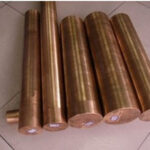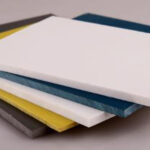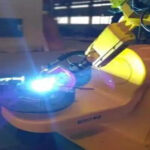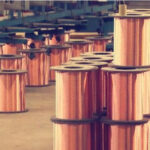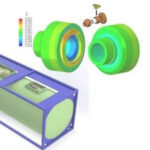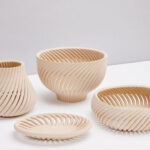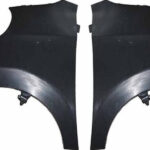You might think that only craftsmen with years of experience and great attention to detail can make spirals, but that’s not the case.
With the help of suitable tools, spiral production can be completed continuously and accurately. This has been confirmed by metal manufacturers serving industries such as power plants, petrochemical production facilities, food manufacturers, and manufacturers of industrial heating and cooling products.
But it is not only large manufacturers that use this technology. It is also used by craftsmen who make stairs and handrails. In all these cases, manufacturers need to meet strict specifications so that the final product is not only clearly acceptable, but also delivers the original design intent.
Imagine how complicated it is to make a heat exchanger with two spirals, a smaller spiral surrounded by a larger spiral, or two spirals with the same diameter and pitch inserted one into the other. The final spiral manufacturing must meet predetermined tolerances, otherwise the final product will not perform as expected.
Because it is impossible to have multiple processes in the spiral rolling process, the customer needs to combine the power and precision of the equipment. Therefore, the machine must be powerful to achieve the required capabilities and accurately achieve the required tolerances in one pass.
The circular profile bending machine is specially designed for the production of such high-tolerance spiral profiles.
In a heat exchanger, you may find tubes of different materials welded together in the same spiral. Each tube has its own purpose because they can withstand different steam pressures. However, each material reacts differently to stress during bending. This means that the profile bending machine used for spiral production needs to be sensitive enough to cope with the rebound characteristics of each material.
In this case, advanced hydraulic technology can help operators overcome the natural characteristics of metal. When processing the spiral profile, the operator of the profile bending machine can fine-tune the profile to make it uniform in shape.
The standard features of the hydraulic system of the circular profile bending machine help to achieve this production accuracy. The operator can manipulate the joystick to control the proportional movement for scrolling and adjustment. You can also adjust the variable translation speed of the calibration unit, and further fine-tune the spiral diameter after the profile passes through the bending roll.
For those customers who require higher precision, the machine can be equipped with micro-hydraulic adjustment of the lower roller. This allows for additional fine-tuning via the separation command on the control panel, and is connected in parallel with the adjustment of the main roller.
Spiral rolling is a complicated fact, because customers will require many different types of profiles, each with its own mechanical properties and characteristics. Even the same type of profile may have a large number of different sizes, which affects the rolling diameter and the pitch of the spiral being manufactured.
The large guide rollers on the circular section bending machine act like a calibration unit to ensure delivery of the required size. In addition, each unit also includes different small rollers to calibrate different types of sections. These calibration rollers can be placed in several positions on the frame of the calibration unit, making possible the range of bending diameters that can be calibrated.
The standard pipe bender can roll left and right spirals, without the need to disassemble and reassemble the calibration unit according to the feeding side of the profile. This helps the operator to improve production efficiency without having to spend time preparing for different installation methods.
A section bending machine can not only handle standard jobs, but also can easily adapt to spiral rolling, meeting the needs of companies that operate various in-house manufacturing jobs. The ability to transfer from one type of spiral manufacturing to another without additional time to change the configuration of the section bending machine is a successful proposition for any factory floor, even those that may not have an in-house spiral form manufacturing expert .
Link to this article:
Reprint Statement: If there are no special instructions, all articles on this site are original. Please indicate the source for reprinting:https://www.cncmachiningptj.com/,thanks!
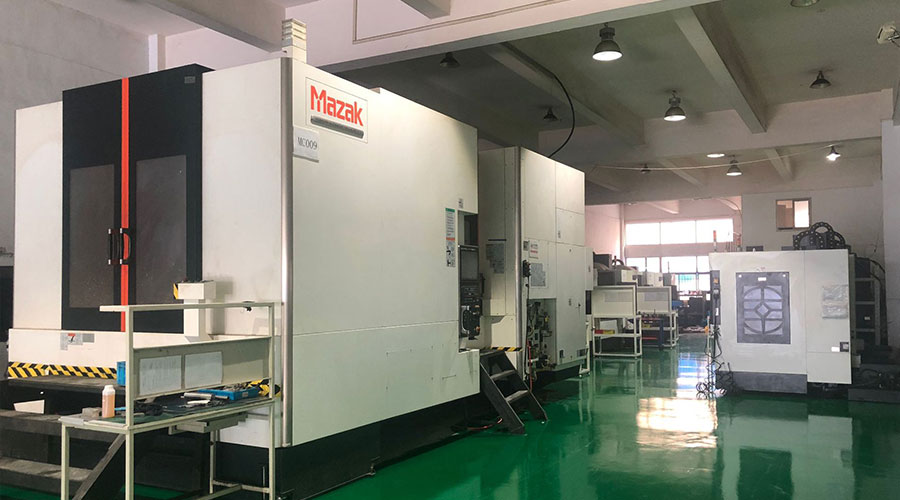 3, 4 and 5-axis precision CNC machining services for aluminum machining, beryllium, carbon steel, magnesium, titanium machining, Inconel, platinum, superalloy, acetal, polycarbonate, fiberglass, graphite and wood. Capable of machining parts up to 98 in. turning dia. and +/-0.001 in. straightness tolerance. Processes include milling, turning, drilling, boring, threading, tapping, forming, knurling, counterboring, countersinking, reaming and laser cutting. Secondary services such as assembly, centerless grinding, heat treating, plating and welding. Prototype and low to high volume production offered with maximum 50,000 units. Suitable for fluid power, pneumatics, hydraulics and valve applications. Serves the aerospace, aircraft, military, medical and defense industries.PTJ will strategize with you to provide the most cost-effective services to help you reach your target,Welcome to Contact us ( [email protected] ) directly for your new project.
3, 4 and 5-axis precision CNC machining services for aluminum machining, beryllium, carbon steel, magnesium, titanium machining, Inconel, platinum, superalloy, acetal, polycarbonate, fiberglass, graphite and wood. Capable of machining parts up to 98 in. turning dia. and +/-0.001 in. straightness tolerance. Processes include milling, turning, drilling, boring, threading, tapping, forming, knurling, counterboring, countersinking, reaming and laser cutting. Secondary services such as assembly, centerless grinding, heat treating, plating and welding. Prototype and low to high volume production offered with maximum 50,000 units. Suitable for fluid power, pneumatics, hydraulics and valve applications. Serves the aerospace, aircraft, military, medical and defense industries.PTJ will strategize with you to provide the most cost-effective services to help you reach your target,Welcome to Contact us ( [email protected] ) directly for your new project.
Table of Contents
Link to this article:Bending machines enable fabs to produce challenging products, making spiral processing more predictable
Reprint Statement: If there are no special instructions, all articles on this site are original. Please indicate the source for reprinting.:Cnc Machining,Thank!^^

